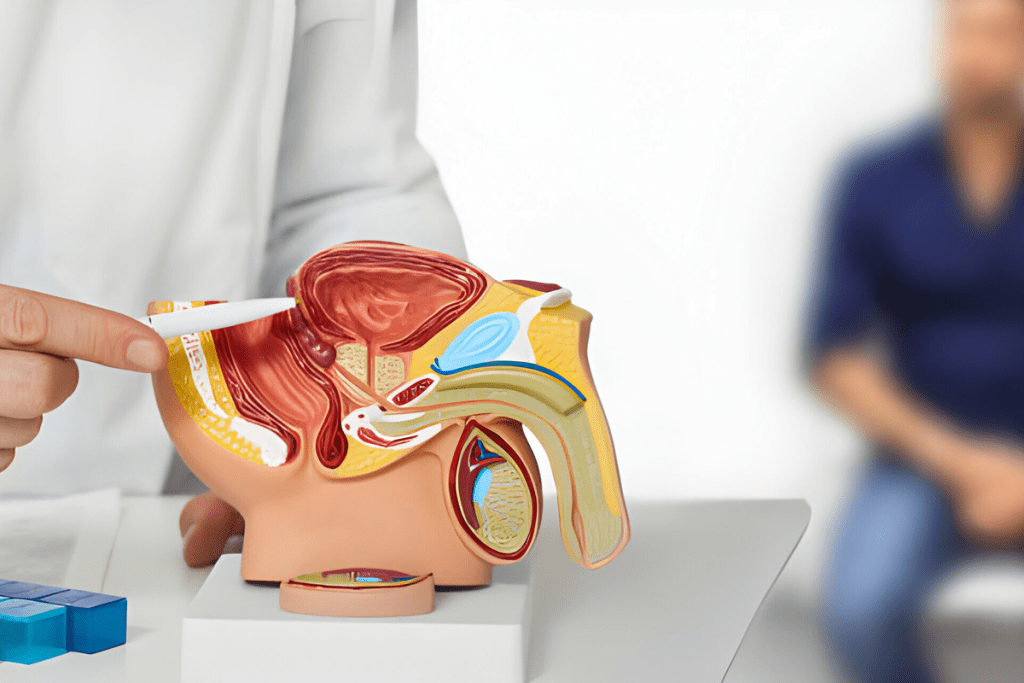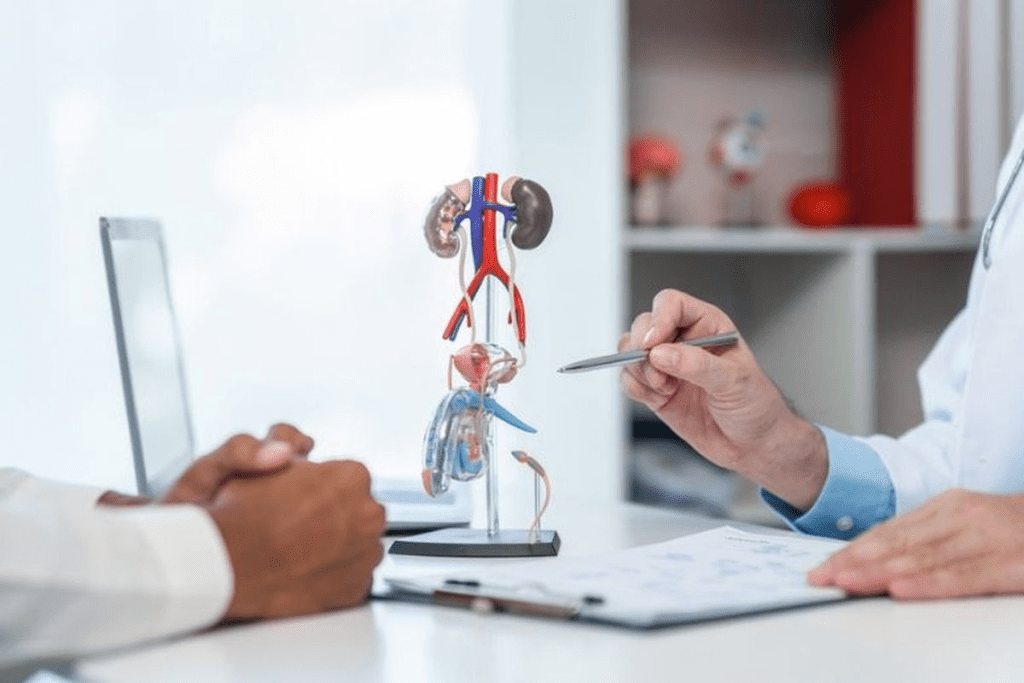Last Updated on October 31, 2025 by

Benign prostatic hyperplasia (BPH), or an enlarged prostate, affects millions of men, mostly over 50. Urologists suggest various treatments based on the patient’s age, prostate size, symptoms, and health. Why do urologists recommend Flomax for an enlarged prostate? Discover the reasons this medication is a top choice for BPH treatment.
For mild cases, lifestyle changes are often suggested. These include dietary adjustments. Medications like alpha blockers, including tamsulosin, help relax the prostate and bladder neck muscles. Quick recovery options like UroLift and Rezum therapy have fewer side effects.
Benign Prostatic Hyperplasia (BPH) is common in men over 50. It’s important to know about it and get medical help early. As we get older, our prostate gland changes, leading to BPH. This is when the prostate grows too big but isn’t cancerous.
The exact reason for BPH isn’t known. But, hormonal changes, like testosterone turning into DHT, seem to play a part. Genetics, lifestyle, and health also affect it.
BPH gets more common with age. Over 50% of men in their 50s and up to 80% in their 70s are affected, says the National Institutes of Health. Knowing this helps both men and doctors deal with it better.
Symptoms of BPH include a weak urine stream and trouble emptying the bladder. You might also pee a lot or feel an urge to pee. If these symptoms get worse, see a urologist. Early treatment can really help your life and stop problems.

For men with mild BPH symptoms, making lifestyle changes can be a good start. Simple habits can help ease symptoms and boost prostate health.
It’s wise to cut down on certain foods and drinks that might make BPH worse. Try to limit caffeine, red meat, and high-fat dairy. These can irritate the prostate and make symptoms worse.
Eating more veggies and fish is good for men with mild BPH. A diet full of fruits, veggies, and omega-3s is healthy. It may also help with BPH symptoms.
By making these lifestyle changes, men can manage their BPH symptoms better. It’s also smart to talk to a urologist. They can help figure out the best treatment plan for you.
BPH is when the prostate gland gets bigger. This can block the urethra, making it hard to pee.
Symptoms include trouble peeing, weak flow, and needing to pee a lot. How bad these symptoms are can decide if you need to see a doctor.
The exact reason for BPH isn’t known. But it might be due to hormones, genes, and lifestyle.
Doctors use your medical history, a physical check, and tests to figure out if you have BPH.
Treatments include changing your diet and taking medicine. There are also less invasive procedures and surgery for severe cases.
Eating less caffeine, red meat, and high-fat foods can help. Eating more veggies and fish is also good.
Alpha blockers, like silodosin and tamsulosin, help relax the prostate and bladder. This makes it easier to pee.
Yes, options like UroLift, Rezum therapy, and prostate artery embolization are available. They offer quick recovery and fewer side effects.
Surgery, like TURP, is for severe cases or when other treatments don’t work.
Some men find relief with supplements like saw palmetto and pygeum. But always talk to a doctor before trying them.
Subscribe to our e-newsletter to stay informed about the latest innovations in the world of health and exclusive offers!